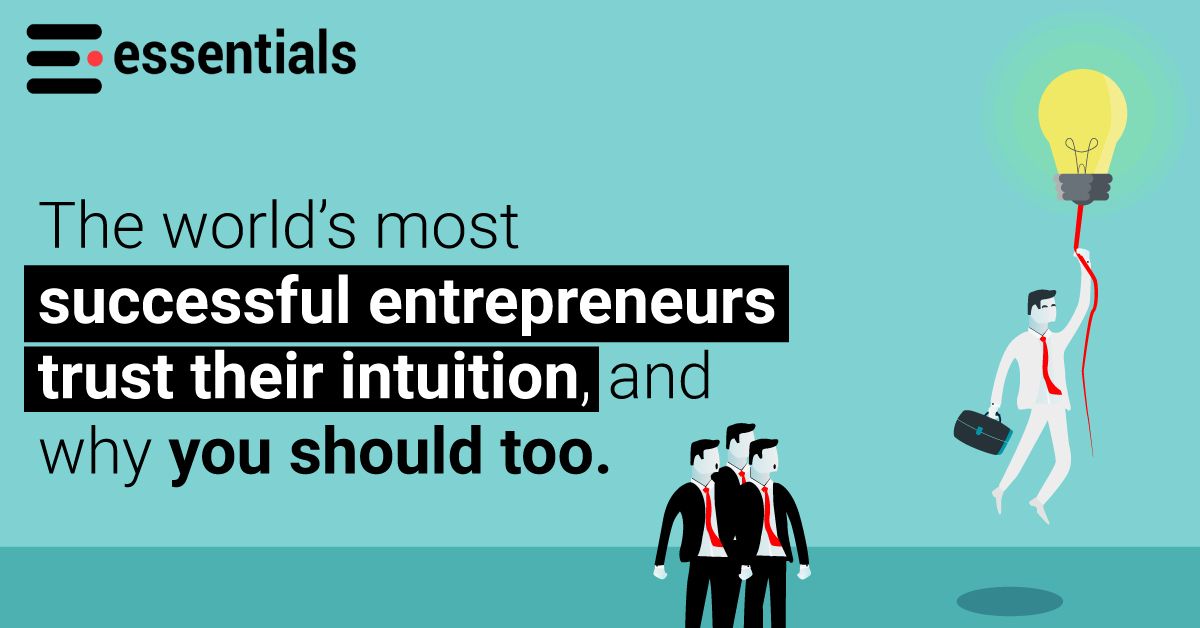
The world’s most successful entrepreneurs trust their intuition, and why you should too.
“Trust your gut”—We’ve all heard it. While many have warned against this kind of instinctual intuition, and for good reason, it turns out that there are three other forms of intuition which could profoundly impact the success of your decision-making.
Before diving in, let’s discuss the real problem with gut instincts. These are quick decisions made on the basis of previous experiences, which could be largely unrelated to the situation we find ourselves in at present. Unsurprisingly, making “gut instinct” decisions could lead to major errors in judgement. While we seem to be living in the era where data reigns supreme, some of the world’s most successful leaders and innovators still rely on their intuition to make significant decisions.
Warren Buffett makes investment decisions in minutes
“Jeff Bezos is a brilliant guy who has built a great company—a data-driven company… But most people who’ve become very successful, certainly in the business world, had an idea—an intuition—that pushed them forward. It wasn’t analysis. Like the best decision-makers, Warren Buffett makes investment decisions in minutes. And, in my opinion, if Steve Jobs had relied on analytical thinking, he never would have built Apple.” -David Rubenstein, co-chairman of Carlyle Group.
A study by the Australian Graduate School of Entrepreneurship revealed that 80% of successful serial entrepreneurs relied on their intuition when making business decisions, and furthermore valued intuition as much as other tools like analytics. It shouldn’t come as too much of a surprise; how many of us have ignored intuitive instincts, only to realize these feelings were right all along? 2,000 years ago, Aristotle said “Wisdom is intuitive reason combined with scientific knowledge.” It appears that the heart and head are meant to work together, not against each other, something the world’s most successful entrepreneurs seem to have fully embraced.
In celebration of this, we’re bringing you the three most valuable forms of intuition successful leaders and innovators rely on: “EXPERT KNOWLEDGE” INTUITION These are fast “instinctual” decisions based on patterns from unconscious knowledge and experiences, which allows us to identify the subtle cues needed to take quick action. “IMPLICIT KNOWLEDGE” INTUITION These are those “flash of lightning” thoughts which come to us seemingly out of nowhere, when we are busy thinking about other things. What’s happening here? When faced with a new problem, we must give our minds room to “process the problem behind the scenes” which often in one way or another, leads us to the answer. “NONLOCAL” INTUITION Now this form is a bit more “out there”, but equally as important. With this form of intuition, we not only access wisdom in our own subconscious, but also the knowledge and wisdom of the collective—i.e. universal intelligence.
Most of us in the world have been taught to discount intuitive feelings from a young age, as they aren’t seen as being incredibly reliable methods of deduction. This is a very dangerous belief, as it teaches us to not fully trust ourselves. While it is important to “sanity check” our decisions, we should give ourselves more credit than we have in recent years. So, while we shouldn’t necessarily trust our gut, we should most definitely trust ourselves.
Read the full article here.
Talk to us: How will you embrace these three forms of intuition when making important decisions? Let us know in the comments below, we would love to hear from you!
Take a look at more top articles, trends and influencers by signing up to our newsletter—By getting to choose which topics interest you the most, you get the latest news delivered with ease: https://partners.essentials.news/multiple-signup